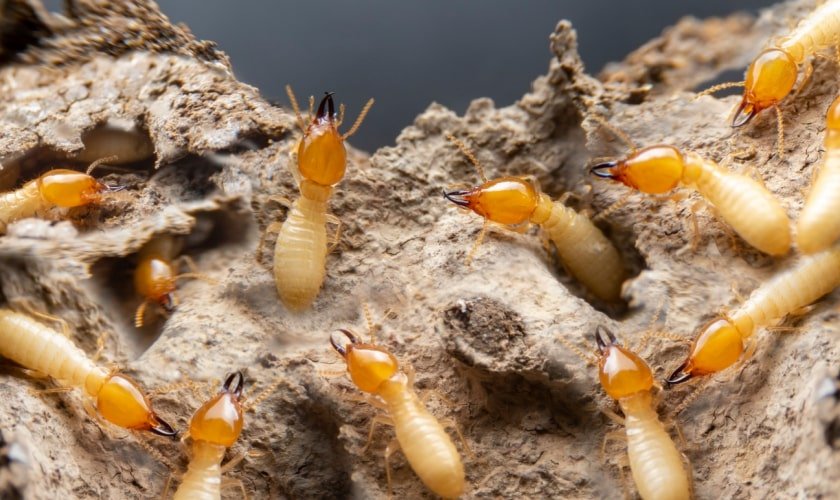Ants don’t always crawl across your kitchen counters or appear in obvious places. In many homes throughout Round Rock TX, exterminators find them hiding in walls and underneath floors. These hidden nests can go unnoticed for weeks or even months—until the damage becomes impossible to ignore.
If you’ve seen a few ants lately, chances are there are more—possibly dozens or hundreds—nesting where you can’t see them. That’s exactly what a professional ant exterminator Round Rock TX often discovers during an inspection. Ignoring those early signs can lead to bigger problems, like food contamination, property damage, and costly repairs. Here’s what you need to know if you’re dealing with ants indoors.
What Types of Ants Hide Inside Walls and Floors?
Different ant species behave in different ways, but many prefer tight, hidden spaces inside homes. Here are the most common culprits found in the Round Rock area:
Carpenter Ants
Carpenter ants don’t eat wood, but they tunnel through it to build nests. You may hear soft rustling in the walls, especially at night. Over time, these ants can weaken wooden support beams, floor joists, or even door frames.
Argentine Ants
These small brown ants are highly invasive. They move in large numbers and create wide, interconnected colonies. Once inside, they often nest under flooring and behind baseboards. They’re most active in moist areas.
Pharaoh Ants
Pharaoh ants are tiny and yellowish. They prefer warm, hidden areas like wall voids or under floorboards. These ants are especially hard to treat with DIY methods because they can split their colony and spread further when disturbed.
Signs That Ants Might Be Nesting Inside
Ants don’t always make a big show of their presence. If you notice any of the following signs, it might be time to contact a professional ant exterminator Round Rock TX homeowners trust:
- Rustling sounds behind walls or beneath floors
- Small piles of sawdust-like material (a sign of carpenter ants)
- Ant trails coming from outlets, floorboards, or vents
- Winged ants (swarmers) near windows or lights
- Ants that keep coming back despite your cleaning efforts
Why Do Ants Prefer These Hidden Areas?
Walls and floors offer everything an ant colony needs: warmth, darkness, moisture, and protection. Round Rock homes often provide perfect entry points through gaps in siding, foundation cracks, or plumbing openings.
- Protection from predators: Walls keep colonies safe.
- Steady temperature: Inside walls and floors, temperatures stay more consistent year-round.
- Close to food and water: Kitchens, bathrooms, and laundry areas give ants easy access.
- Moisture sources: Leaky pipes or damp wood attract nesting ants.
What Happens If You Ignore the Problem?
Ants won’t go away on their own. In fact, once inside, they tend to expand their colonies over time. Delaying treatment could result in:
- Structural wood damage
- Spread of bacteria from ants contaminating food surfaces
- Higher extermination costs later
- Recurring infestations due to hidden satellite colonies
That’s why it’s critical to act quickly and call a qualified ant exterminator Round Rock TX homeowners can rely on.
What You Should Do Right Now
You don’t need to wait until you’re overwhelmed with ants to do something. If you even suspect they’re in your walls or under floors, take these steps:
- Watch for ant activity near windows, floors, baseboards, and outlets.
- Listen for faint noises—especially at night—when it’s quiet.
- Check for moisture problems like leaks, soft wood, or mold.
- Don’t use over-the-counter sprays, which may scatter the colony.
- Call a trusted professional to inspect and treat your home.
Exterminators know how to locate nests using inspection tools and experience. They also use effective treatments that reach deep into walls and flooring—areas that DIY products can’t touch.
What Round Rock TX Exterminators Typically Find
When a licensed ant exterminator Round Rock TX specialist arrives, they start with a full inspection. They’ll examine:
- Interior baseboards
- Exterior foundations
- Attics, crawlspaces, and wall voids
- Plumbing access points
- Kitchen and bathroom cabinets
Once the species is confirmed, treatment begins. Carpenter ants often need dust or foam injections into the walls. Argentine or Pharaoh ants may require gel baits that are taken back to the colony.
Professionals also treat the surrounding exterior of your home to prevent re-entry. They seal up gaps, recommend moisture control strategies, and may return for follow-up visits to confirm the ants are gone.
Why DIY Doesn’t Work for Hidden Ants
It’s tempting to spray visible ants and call it a day. But that only solves the surface issue. Ants inside your walls or floors will just regroup and reroute. Worse, some colonies split up when threatened, making them harder to eliminate.
Only a trained ant exterminator Round Rock TX provider knows how to:
- Identify the exact ant species
- Find nesting spots hidden from view
- Apply safe, deep-penetrating treatments
- Stop future infestations through prevention
When to Call the Experts
You should call an exterminator as soon as you notice persistent ant activity—especially if it happens near walls, floors, or vents. Waiting can give ants time to expand and cause more damage. Round Rock’s warm climate gives many ant species the perfect conditions to thrive indoors.
Look for a provider with local experience, clear communication, and treatment plans designed for your home—not just a quick spray. A good exterminator will explain what’s happening, show you where the problem lies, and outline exactly how they’ll fix it.
Final Word
Ants may be tiny, but once they settle in behind your walls or under your floors, the damage and disruption can become serious. If you’ve noticed ants indoors and suspect they’re hiding where you can’t see them, don’t wait.
A skilled ant exterminator Round Rock TX homeowners trust will find the source, eliminate the infestation, and help prevent it from happening again. It’s the best way to protect your home, your food, and your peace of mind.
